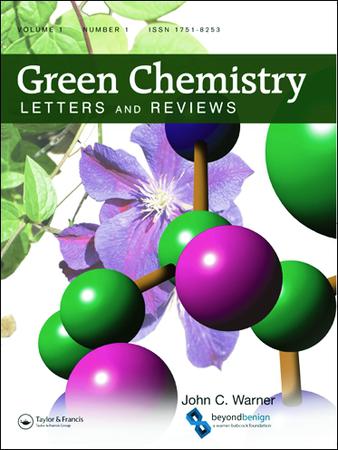Is the pandemic masking waste management? – A review on fallout of the COVID-19 viral contagion
IF 5.8
3区 化学
Q1 CHEMISTRY, MULTIDISCIPLINARY
引用次数: 2
Abstract
The global outbreak of SARS-CoV-2 has spurred a reassessment of Municipal Solid Waste management strategies and approaches. A significant need for sanitation and hygiene was accentuated for disease prevention and control with the onset of the pandemic. With an alteration of the status quo in waste management system, an unprecedented amount of face masks, protective equipment, and other biological wastes was generated in the form of Municipal Solid Waste. This upsurge of potentially infected wastes originated a risk of transmission amongst frontline workers. Furthermore, the potential contamination of Municipal Solid Waste was rendered as a legitimate threat due to improper collection practices, disposal and handling of solid waste. Several novel waste disposal techniques and waste management policies were also introduced during this period. However, the sanitation-policy making-occupational safety nexus remains inadequately explored under the prevalent COVID-19 scenario. Through the prism of shifting waste composition, this review offers a global assessment of existing solid waste management systems during the COVID-19 pandemic. The physiological and psychological hazards faced by the frontline workers were explored and instances of best-case and worst-case policies on solid waste handling were recorded. Modern methods of waste disposal and latest trends of policymaking were evaluated. A model study of unsupervised learning via Partition Around Medoids cluster analysis was undertaken to reveal underlying patterns of waste management policies. Although, the clusters were formed devoid of any socio-economic parameters, this study strives to indicate proof of concept and can serve as a precursor to advanced clustering studies. © 2023 The Author(s). Published by Informa UK Limited, trading as Taylor & Francis Group.大流行是否掩盖了废物管理?——新冠肺炎疫情影响研究综述
SARS-CoV-2的全球爆发促使人们重新评估城市固体废物管理战略和方法。随着大流行病的开始,为了预防和控制疾病,对环境卫生和个人卫生的迫切需要更加突出。随着废物管理系统现状的改变,以城市固体废物的形式产生了前所未有的口罩、防护设备和其他生物废物。潜在受感染废物的激增造成了一线工作人员之间传播的风险。此外,由于固体废物的收集、处置和处理不当,城市固体废物的潜在污染被视为一种合法的威胁。在此期间,还介绍了一些新的废物处理技术和废物管理政策。然而,在COVID-19流行的情况下,卫生-政策制定-职业安全之间的关系仍然没有得到充分探讨。通过废物组成变化的棱镜,本综述对2019冠状病毒病大流行期间现有固体废物管理系统进行了全球评估。探讨了一线工人面临的生理和心理危害,并记录了固体废物处理的最佳情况和最坏情况政策实例。评价了现代废物处理方法和政策制定的最新趋势。通过围绕介质的分割聚类分析对无监督学习进行了模型研究,以揭示废物管理政策的潜在模式。虽然这些聚类是在没有任何社会经济参数的情况下形成的,但本研究努力表明概念的证明,并可以作为高级聚类研究的先驱。©2023作者。由Informa UK Limited出版,以Taylor & Francis Group的名义进行交易。
本文章由计算机程序翻译,如有差异,请以英文原文为准。
求助全文
约1分钟内获得全文
求助全文
来源期刊

Green Chemistry Letters and Reviews
CHEMISTRY, MULTIDISCIPLINARY-GREEN & SUSTAINABLE SCIENCE & TECHNOLOGY
CiteScore
9.10
自引率
3.00%
发文量
48
期刊介绍:
Green Chemistry Letters and Reviews is an Open Access, peer-reviewed journal focused on rapid publication of innovative new syntheses and procedures that reduce or eliminate the use and generation of hazardous materials. Reviews of state-of-the-art green chemistry technologies are also included within the journal''s scope.
Green Chemistry Letters and Reviews is divided into three overlapping topic areas: research, education, and industrial implementation. The journal publishes both letters, which concisely communicate the most time-sensitive results, and reviews, which aid researchers in understanding the state of science on important green chemistry topics. Submissions are encouraged which apply the 12 principles of green chemistry to:
-Green Chemistry Education-
Synthetic Reaction Pathways-
Research and Process Analytical Techniques-
Separation and Purification Technologies-
Renewable Feedstocks-
Degradable Products
 求助内容:
求助内容: 应助结果提醒方式:
应助结果提醒方式:


